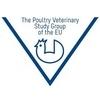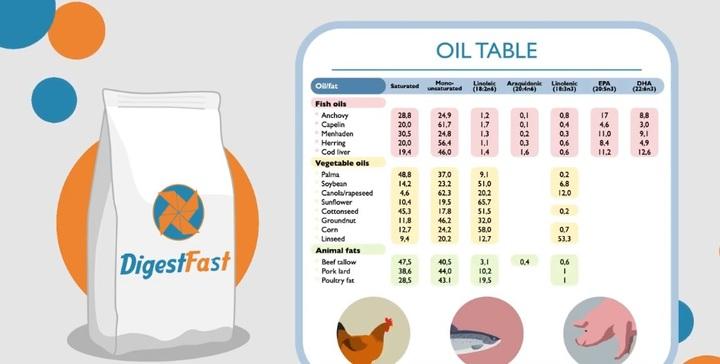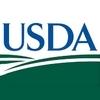Explore all the information on
Poultry vaccines
Disease prevention by vaccination is an integral part of flock health management protocols. Active immunization using live vaccines is the current industry standard. Routinely used vaccines in chickens include MDV, NDV, IBV, and IBDV, and in turkeys NDV and HEV. Newer vaccines, including molecular recombinants in which genes of immunogenic proteins from infectious agents are inserted into a live viral vector, are also being examined for commercial use. Efforts are under way to enhance vaccine efficacy by the use of adjuvants, particularly cytokines. The vaccine delivery systems include in ovo injection, aerosol, spray, drinking water, eye drop, and wing web injection. The in ovo vaccination procedure is relatively new and at the present time it is used primarily to vaccinate broiler chickens against MDV. Birds respond to vaccines by developing humoral and cellular immune responses. There are two main types of vaccine available for poultry: live or killed.
...
Comments : 0
Recommendations: 0
Introduction Avian influenza is a highly contagious worldwide zoonosis caused by avian influenza A virus (AIV) (Wlliams, 2016). This virus is a single strand RNA, negative sense, segmented virus that belongs to the family Orthomyxoviridae (Swayne and Glisson, 2013). Type-A influenza virus is isolated from birds and is termed avian influenza or avian flu (Alexander, 2000). The influenza virus contains two main surface segments, hemagglutinin (H) and Neuraminidase (N) segments...
Comments : 0
Recommendations: 1


Pullets to Layers – Ensuring a Smooth Transition in Cage-Free Systems
Suggested link
Manuel Da Costa (Zoetis) commented on trials done with five serotypes to improve poultry protection, during IPPE 2020 in Atlanta, USA....
Comments : 7
Recommendations: 4
Introduction In Egypt, poultry sector is the fastest growing industry, with over 90 billion Egyptian pound investments. (1$ = approximately 17 L.E.) (Sabry, 2019). It provides the country with the greatest part of its meat production, in addition to job opportunities for approximately 3 million employees (Sabry, 2019). Several pathogenic agents affect the poultry and associated with severe losses in the poultry production in Egypt specially Newcastle virus,...
Comments : 0
Recommendations: 0
Introduction Coccidiosis is considered one of the most important poultry diseases worldwide due to the economic losses it produces in performance and due to medication usage (Williams, 2002; Dalloul and Lillehoj, 2005). The use of vaccines to prevent coccidiosis has proven to be successful (Lee et al., 2009; Danforth, 1998; Williams and Gobbi, 2002) and is widely used today in the U.S poultry industry (Agri-Stats, Fort Wayne IN). However, in the process of developing immunity,...
Comments : 1
Recommendations: 0
We’re glad to announce the 7th Conference on Poultry Intestinal Health which is to be held in the beautiful colonial city of Cartagena, at the Caribbean coast of Colombia from April 21st to 23rd, 2021*.
Keynote presentations by internationally renowned speakers will provide the latest scientific information on this subject and are the backbone for a diverse program in which there is plenty of room for short communications, discussion and networking.
The conference will...
Comments : 0
Recommendations: 3
Definition: Vaccination is an idea to enhance the protective immunity In an organism by inoculating an antigen or substance. History: The word vaccination is derived from a Latin word “vacca” meaning “cow”. Old females of Turkish nomads used to keep a needle (immersed in small pox lesion) with them. They used to use these needles to scratch the newborn. The newborn would develop a disease little bit but after some time newborn would...
Comments : 0
Recommendations: 0
Newcastle disease (ND) is caused by virulent strains of the Newcastle disease virus (NDV), also recently designated as the Avian Orthoavulavirus 1 (AOAV-1). It is one of the most devastating disease of poultry and wild birds. Phylogenetic analyses clearly distinguish historical isolates (obtained prior to 1960) from currently circulating viruses of class II genotypes V, VI, VII, and XII to XVIII. Genotype VII is predominant in the Middle East Region (Radwan et al....
Comments : 0
Recommendations: 0


Current market review and perspective of Florfenicol, Tilmicocin, vitamins and aminoacids
Suggested link
Infectious bronchitis (IB) was described in the USA for the first time as a respiratory disease of chickens. Its aetiological agent was isolated in 1936 and then identified as a Gammacoronavirus, namely infectious bronchitis virus (IBV) (Cook et al. 2012). Being a single-stranded RNA virus, IBV is highly susceptible to spontaneous mutation and genetic recombination, meaning that a large number of variants are circulating worldwide (de Wit et al. 2011; Jackwood 2012; Valastro et al....
Comments : 6
Recommendations: 0
Karel Schat (Cornell University) talked about Marek's Disease and Infectious Bursal Disease when discussing this subject, during IPPE 2020 in Atlanta, USA....
Comments : 1
Recommendations: 1
Introduction Avian Infectious bronchitis (IB) is a highly contagious and economically important worldwide viral disease of chickens. It affects chickens of all ages with severe signs in younger birds and high mortality rates especially when a co-infection with a secondary bacterial or viral pathogen(s) (1–4). Infectious bronchitis virus (IBV) mainly causes respiratory disease and nephritis in chickens but can also result in poor weight gain and lost feed efficiency in...
Comments : 0
Recommendations: 0
Kannan Ganapathy (University of Liverpool) talked about the epidemiology, prevention and control of this disease, during Avicolas Porcinos 2018 in Buenos Aires, Argentina....
Comments : 18
Recommendations: 17
.jpg&w=3840&q=75)

Biodegradation of Mycotoxins: A Biotechnological Innovation for Safe Animal Feed
Suggested link
Infectious bronchitis (IB) is an acute and highly contagious respiratory disease of chickens throughout the world, so much so that many consider IB to be the most contagious of all poultry diseases . It is characterized by respiratory signs that include gasping for breath, coughing, sneezing, tracheal rales (rattled breathing), and nasal discharge. Egg-laying birds, in addition to respiratory signs, often also experience decreased egg production and loss of internal egg...
Comments : 2
Recommendations: 4
Ariel Bergeron (Texas A&M University) presents her poster on calcium as an alternative to help
mitigate the risk of Necrotic Enteritis, during IPPE 2020 in Atlanta, USA....
Comments : 1
Recommendations: 0
Melha Mellata (Iowa State University) discussed how probiotics and live vaccines affect the gut microbiota of chickens, during the 8th Symposium on Gut Health in Production of Food Animals in St. Louis, USA....
Comments : 5
Recommendations: 4
...
Comments : 0
Recommendations: 2
Introduction Avian coccidiosis is one of the most costly infectious diseases affecting the commercial poultry industry [1]. Coccidia that infect chickens include Eimeria acervulina, E. tenella, E. maxima, E. brunetti, E. necatrix, E. praecox, and E. mitis. These apicomplexan protists invade cells of the intestinal epithelium, evoking necrotic tissue destruction and resulting in reduced body weight gain in broilers, decreased egg production in layers, and fecal shedding of viable...
Comments : 0
Recommendations: 0
INTRODUCTION Coccidiosis is considered one of the most important poultry diseases worldwide due to the economic losses it produces in performance and due to medication usage (Williams, 2002; Dalloul and Lillehoj, 2005). The use of vaccines to prevent coccidiosis has proven to be successful (Lee et al., 2009; Danforth, 1998; Williams and Gobbi, 2002) and is widely used today in the U.S poultry industry (Agri-Stats, Fort Wayne IN). However, in the process of developing immunity,...
Comments : 1
Recommendations: 1


Pullets to Layers – Ensuring a Smooth Transition in Cage-Free Systems
Suggested link
Introduction Poultry production in Algeria faces many zootechnical and health constraints, such as viral infections like avian infectious bronchitis (IB). The avian IB virus (IBV), a member of the Coronaviridae family (order Nidovirales and genus Coronavirus), frequently infects broilers and egg-laying hens and leads to severe economic losses to the poultry industry [1]. Since its discovery in the 1930s [2], the IBV has been identified as the major cause of respiratory...
Comments : 1
Recommendations: 2
Introduction Maternal immunity for Newcastle Disease (ND) can be quantified with Haemagglutination Inhibition(HI) test. Titres are expressed as log 2 values. Titres in a group are analysed statistically and mean titre in a group depicts status of flock immunity. Quantification of HI titre at day old age and subsequent quantification at weekly interval can determine the maternal antibody interference in normal...
Comments : 11
Recommendations: 6





.jpg&w=3840&q=75)


.jpg&w=3840&q=75)




























